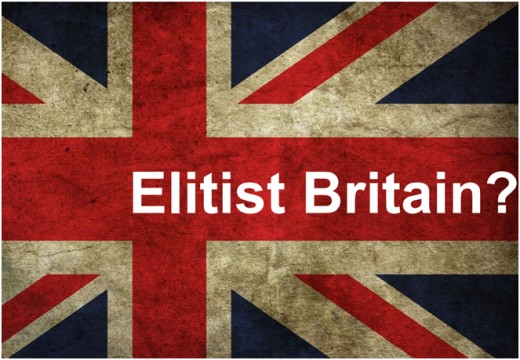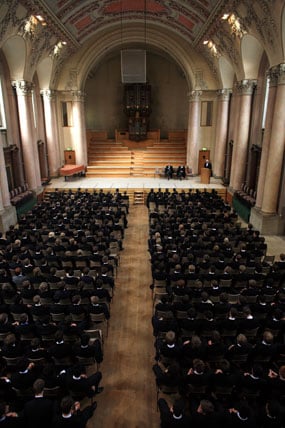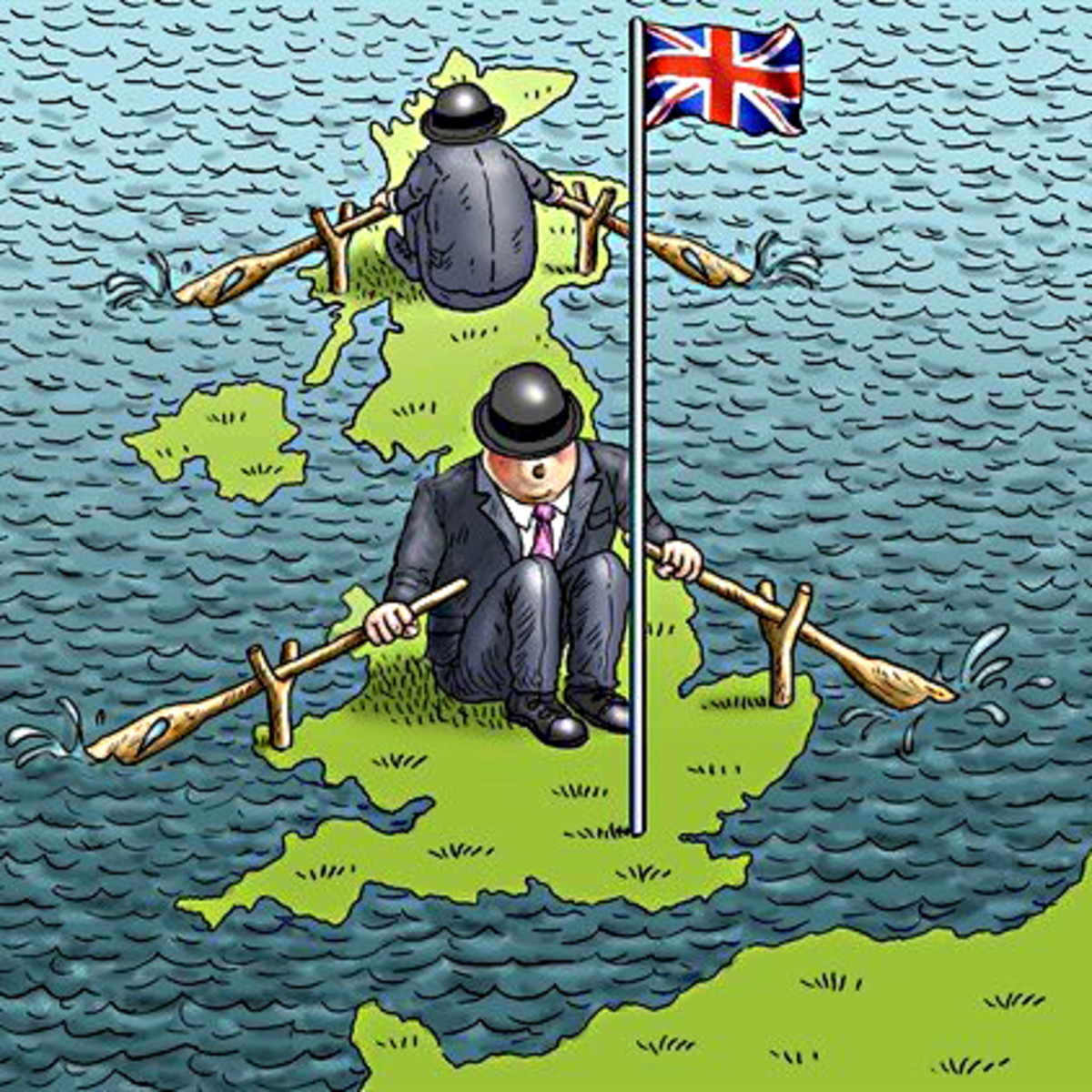Lingering Elitism in the United Kingdom
Introduction
A recent report by the government's social mobility and child poverty commission reveals that the UK continues to harbor and exercise elitism. This study assessed the occupations of the wealthiest and most powerful individuals up against their educational background. Specifically, the report scrutinizes the fields of law, politics and media above all others and suggests that these institutions are particularly selective of most of their high ranking personnel. There continues to be an outflow of incredibly successful alumni coming out of the universities of Oxford and Cambridge. These two establishments are frequently referred to as 'Oxbridge' rather imaginatively and both have systematically been at the forefront of elitist culture in the UK. The report also finds that those wealthiest and most powerful typically study at either of these universities following an adolescent upbringing within a private or grammar school. With the government themselves now admitting that the UK has severe restrictions in economic and social mobility, the UK urgently needs to find a reversal of this trend which just continues to persist
The Headline

Core themes
The report compiled by this government department was very graphical and straightforward. It uses little jargon and explains things in a manner anyone can understand. There was a clear reflection of the means and methodology used to pursue the results and there are few if any loopholes in their study. Finally, it is comprehensive in its research with a clear indication of the result it wants to project. To highlight the core themes of the report; this is a critic of British society and culture, the very kind that is sapping the economic potential of millions of people from disadvantaged backgrounds or in other words, the backgrounds of ordinary people who are only disadvantaged in relation to the 'select few'. The House of Commons, the judiciary and the media are all dominated by personnel from independent schools and/or from the universities of Oxford and Cambridge, this is despite the fact that only 7% of the population is privately educated and fewer than 1% of the population is part of the Oxford or Cambridge alumni. The architects of this study believe that these findings represent a regressive strain on the modern principles of meritocracy and social justice and that the 'lack of diversification at the top' in disciplines which need to represent the general pubic (media and politics especially) is contradictory to what those job roles entail.
Personal Analysis
My point of view is one of many, and I am aware that no one answer or response is ever the right one. That is one of the reasons I enjoy this field of study. The report is clearly a biased examination of Britain's social status but it has also included some personal testimonials from people directly involved in the industries analysed. (I've included my own in the bottom paragraph). The stories are far from supportive of the government's interpretations for they imply that there is little correlation between educational background and occupation clout. It can be contested further when we consider that even though there may very well be a correlation, correlation itself does not necessarily indicate causation. More cohesive criticism can be directed at the implication that the offspring of high income families are the only ones able to access the highest standard of education. In contrast to this view, the cost of tuition at Oxford and Cambridge is £9000, which is the standard fee adopted by most universities in England. Their entrance exams are assessed on academic merit alone and both universities are consistently emphasizing their accessibility to people of all backgrounds irrespective of income or previous education. With these facets of modern 'Oxbridge' in mind, it seems as though the universities are still selective but for greater publicity purposes owing to their constant strive to attain as diverse a class as possible (i.e, they're picking students increasingly based on their background but they're selecting from all walks of life and not just the elite). To counter this, it is at the age of almost full maturity that one applies for university and those from higher income backgrounds have been more thoroughly invested in with regards to their education and consequently will more likely achieve higher grades at GCSE and A Level, that's not necessarily to say that all heavily financed investments pay off and individuals can succeed or fail no matter how much they're supported, financially or otherwise.
The cumulative knowledge attained by one educated privately and then subsequently at a world class university would mean that they've a level of achieved academic excellence which distinguishes them in their job searches and if these people running the courts and the government are so gifted, should they not deserve to have the best jobs for they have the best education? The obvious 'but' in this case is that there hasn't been a level playing field because not every family can afford private schooling or even university, and that is the key argument behind the recent report and it's something of a cyclical phenomenon which consistently favors a minority of families in the country and isn't impacting a greater percentage of the population. If half of all people went to private schools then it wouldn't be interpreted quite as negatively. Morally and ethically speaking, there are multiple perspectives. The government states that it is unhealthy for a democratic and progressive country to be managed in this out of date fashion and political party leaders state that it is unfair and the structures should be reformed, albeit with a bout of hypocrisy. Finally, Laissez faire economic philosophy, when applied would dictate that education, like all other departments needs to work unregulated with little or no government interference and as a result it is down to each individual to make their position in life the best that they can without the intrusive rules and regulations. The cyclical pattern of inter-generational elitism in this case would most likely be more potent. No straightforward conclusion can be reached, however one interesting case study is Finland, which developed a unique schooling system based on fully equalized opportunities and a relatively relaxed approach advocated by both the government and schools themselves. (Link below)
Eton Assembly

Public Opinion
Do you consider elitism to be a pressing issue in modern Britain
Childhood memories
When i was at the age of eleven and undergoing the transition from primary to secondary education here in the UK, my parents exhausted all their efforts to try to get me enrolled in the most successful comprehensive school that was accessible to us on a daily basis. Only a year earlier they had tried and failed to prepare me for a grammar school education by pressuring me into an 11+ exam with ongoing after school classes at the residence of a private tutor. I was 10 years old and naturally had no interest in finishing one school just to go and get educated further twice a week, especially during summer break when lessons only got longer and more difficult. I look back on the circumstances a decade ago and I wonder why this was and is still the case; my parents consistently express delusions of grandeur but we live in a country where the standard of education seems very polarized even at a regional level. Should the system reverse the trend of competitiveness that was promoted in the 1980s to one where there is a uniform standard across the state? We still have school uniforms in the UK, however they do not reflect the true fashion in which the every school is governed.
Elitist Britain Report
- https://www.gov.uk/government/uploads/system/uploads/attachment_data/file/347915/Elitist_Britain_-_F
Link to the report by the social mobility and child poverty commission.
Finnish School Children
- The Finnish National Board of Education - Education system
Small synopsis of the Finnish education system.








